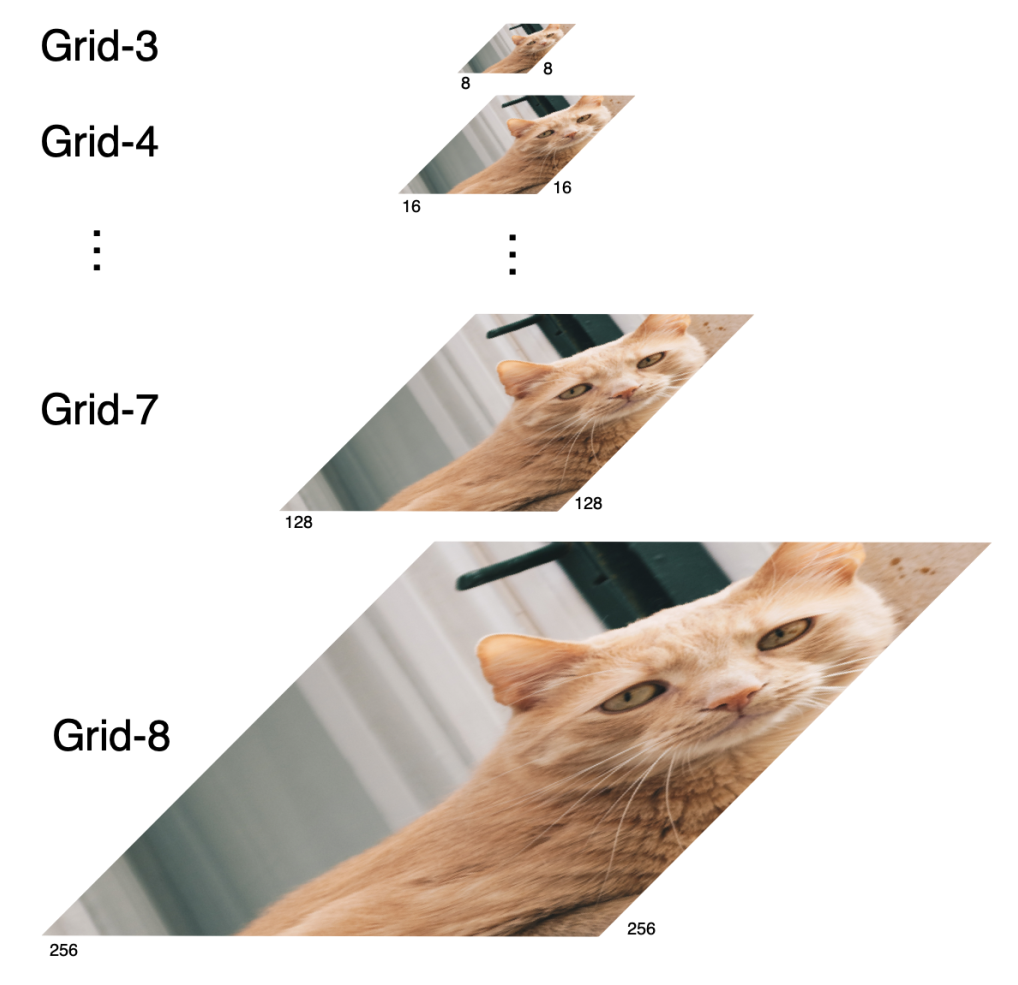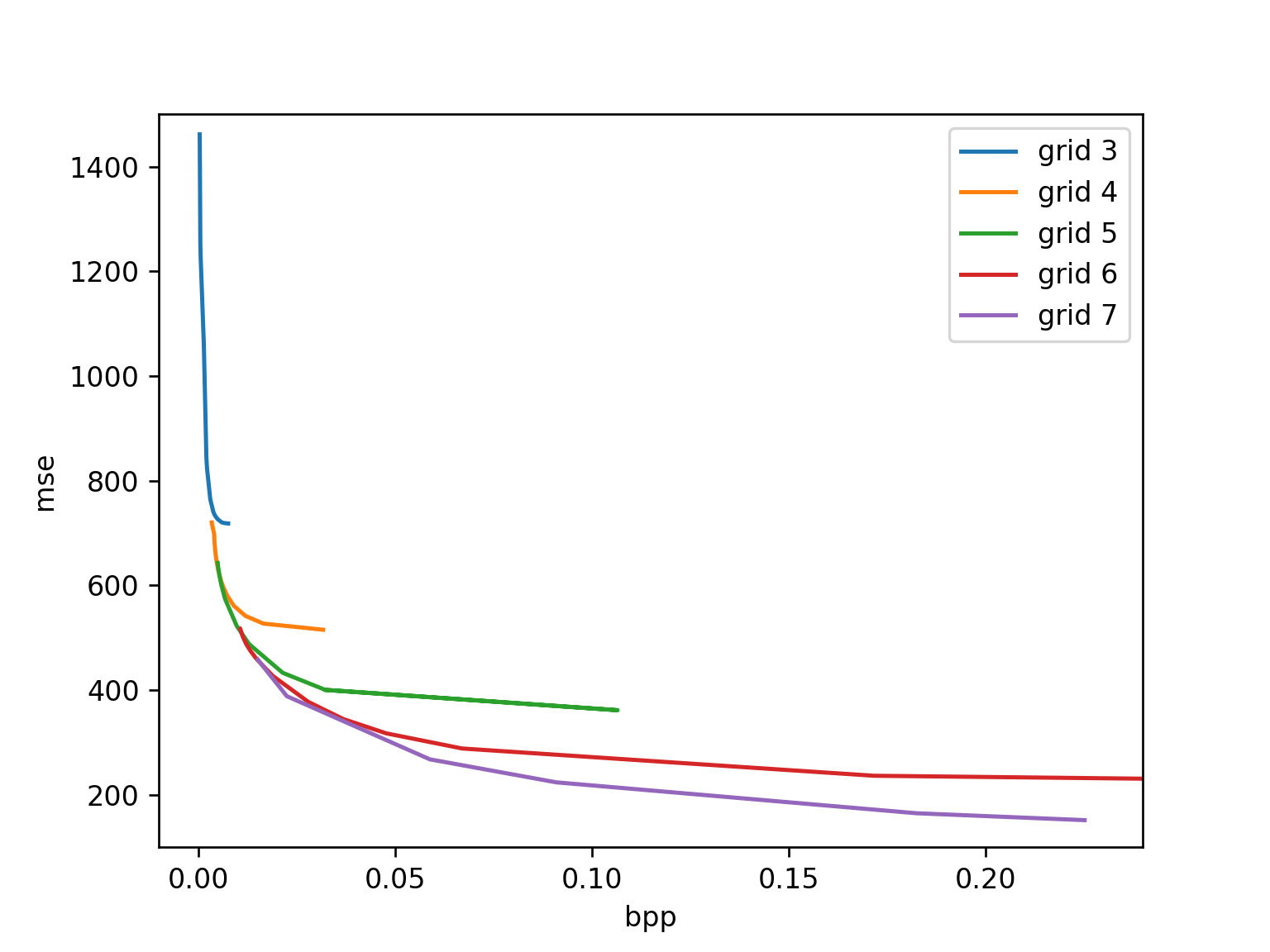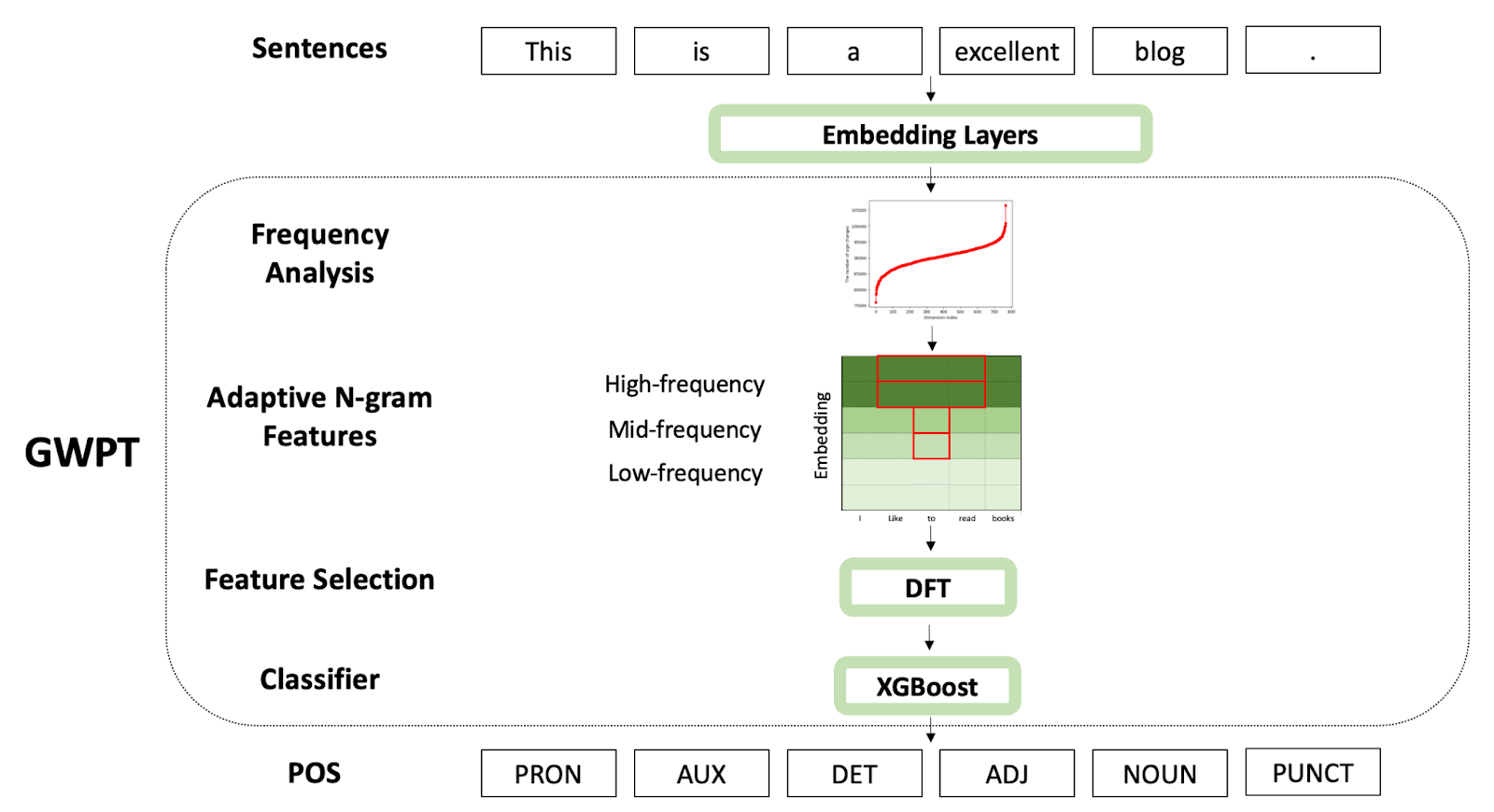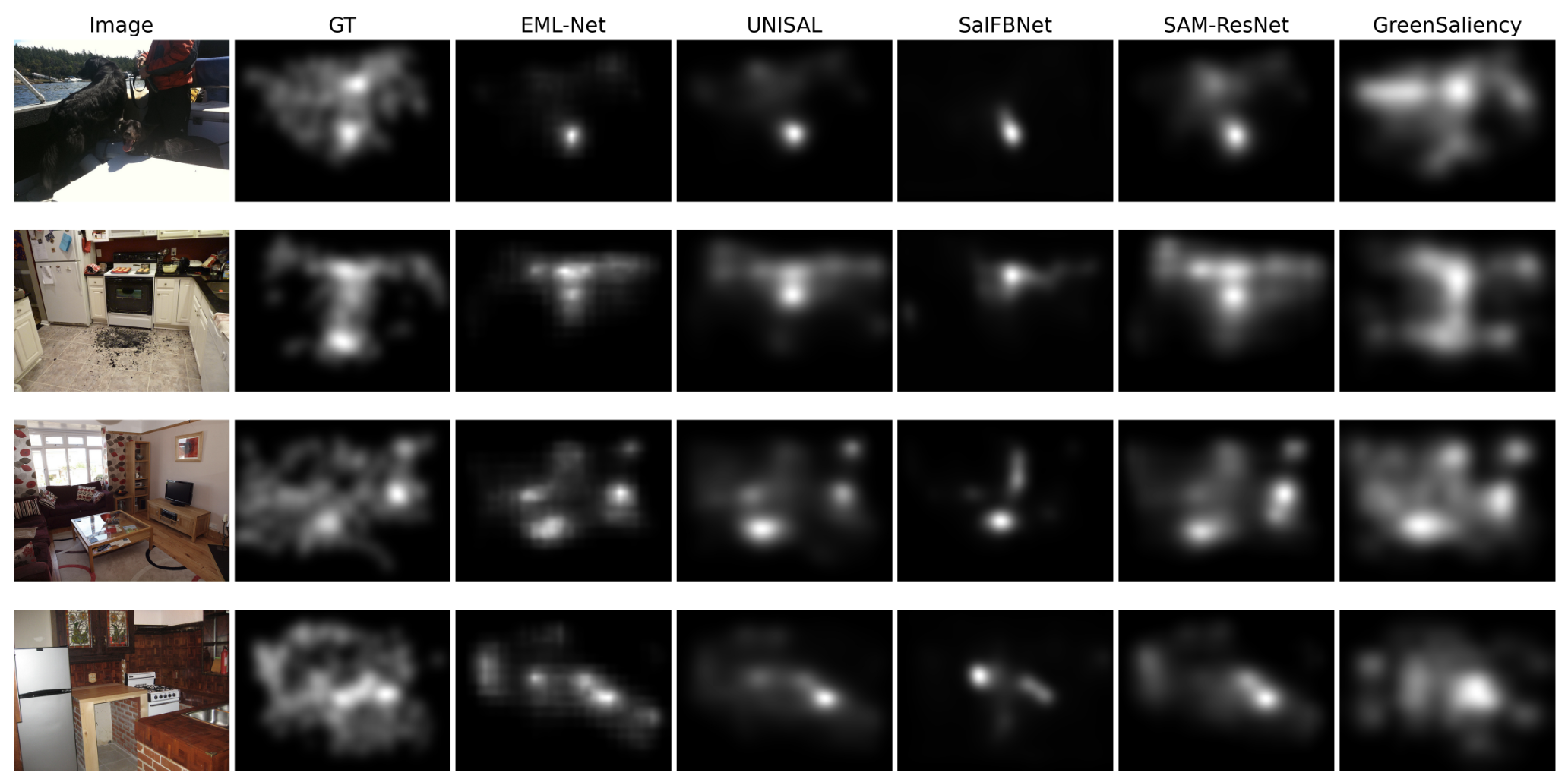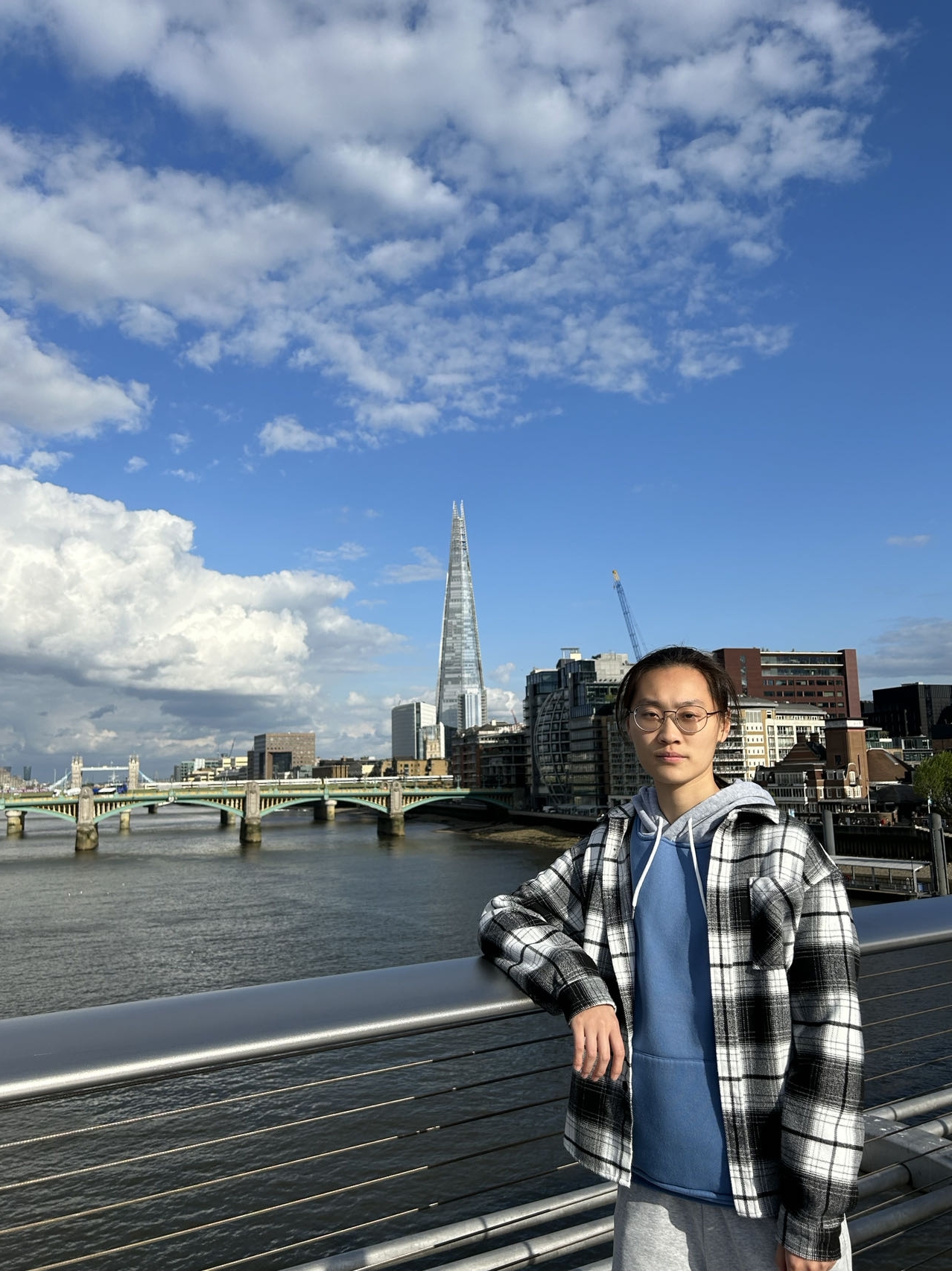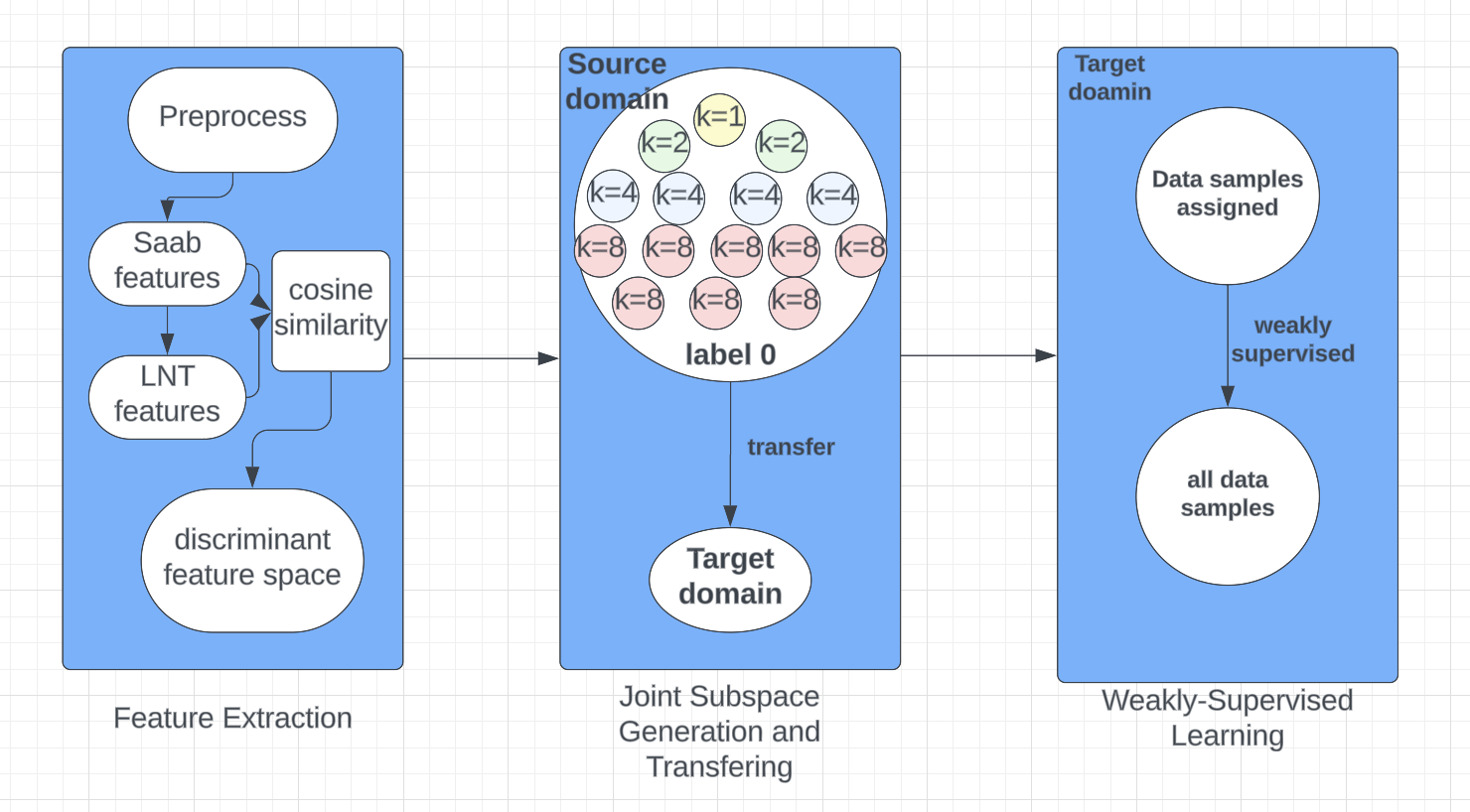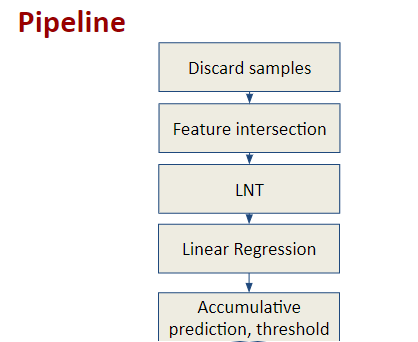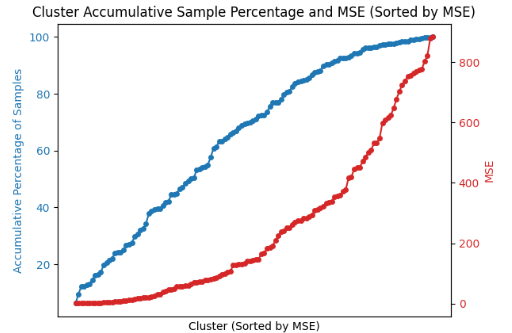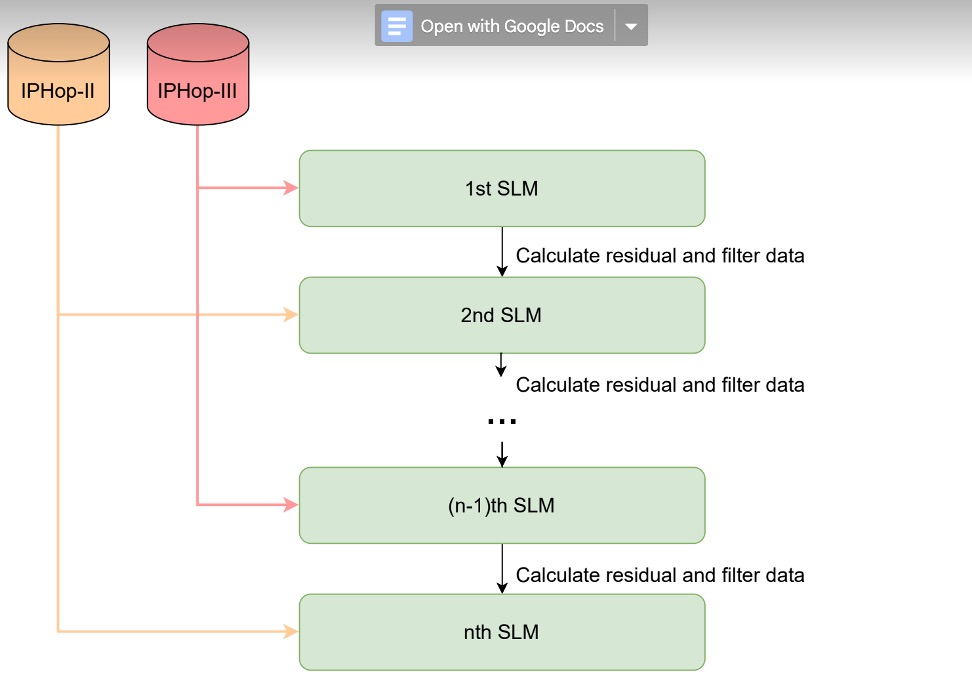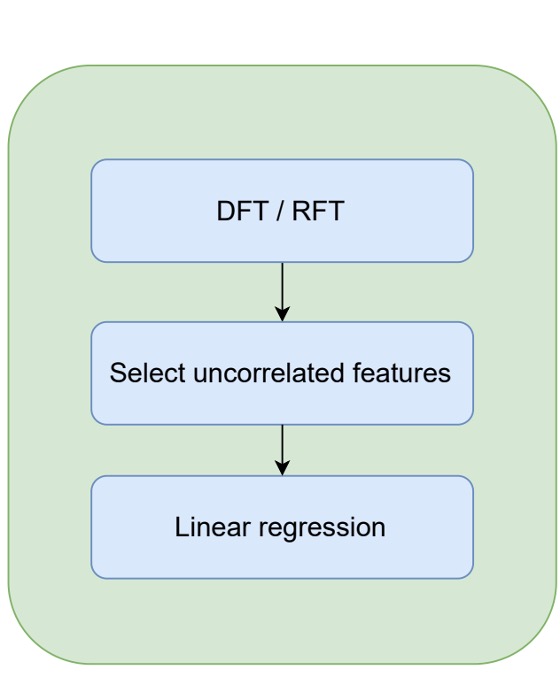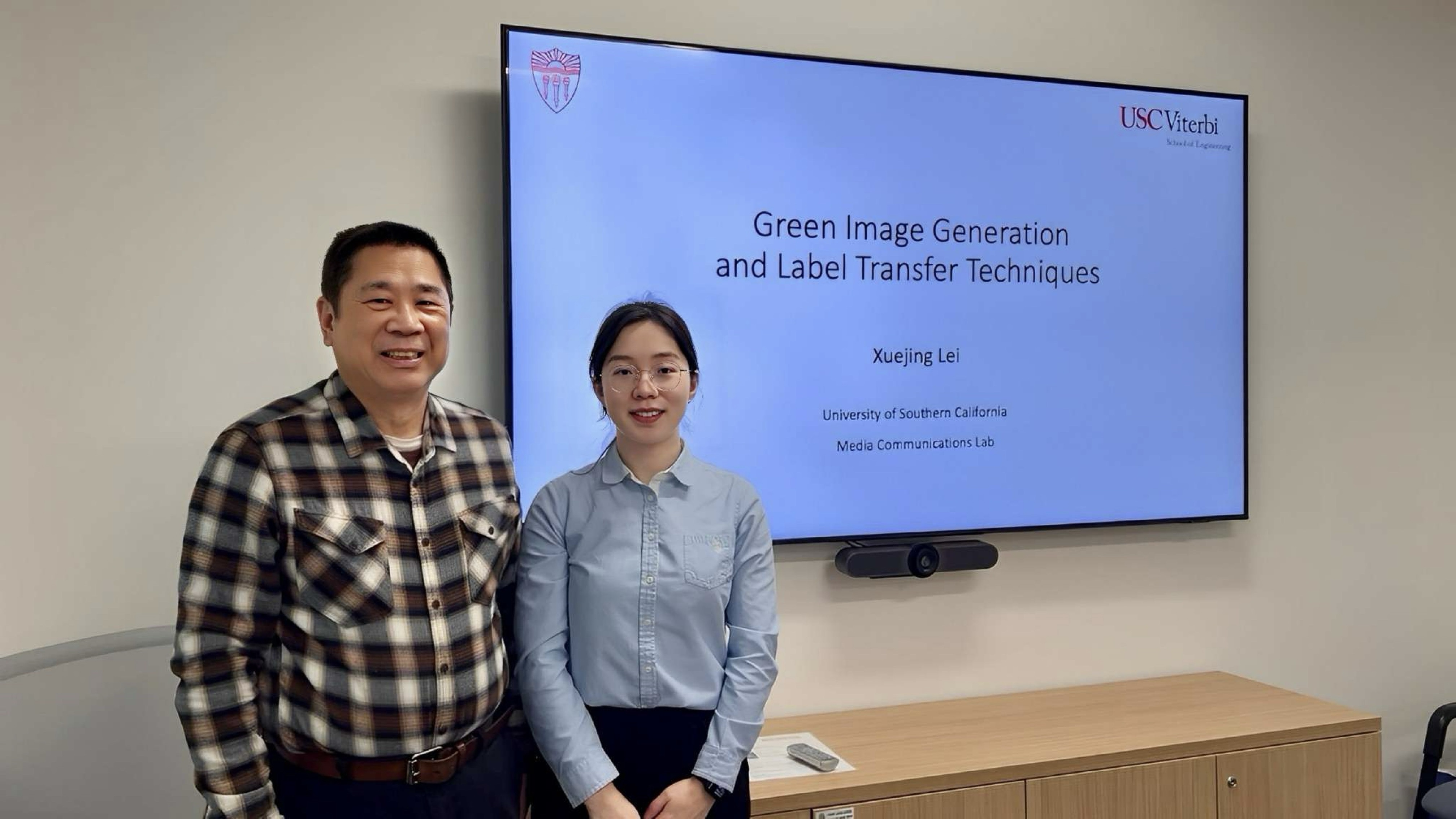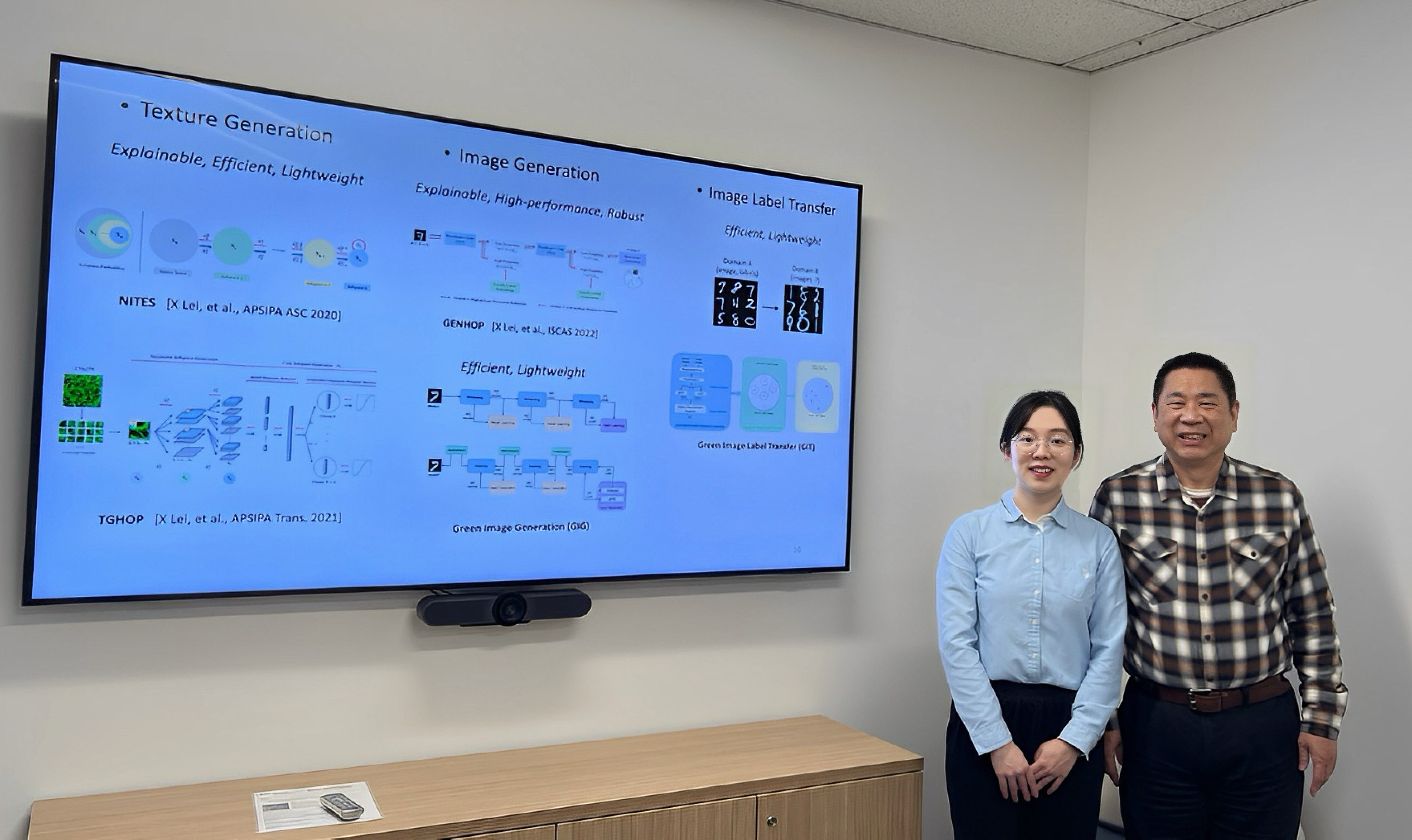MCL Research on Green Image Coding
Image coding is a fundamental multimedia technology. Popular image coding
techniques include hybrid and deep learning-based frameworks. Our green image
coding (GIC) aims to explore a new path to a low-complexity and high-efficiency
coding framework.
The main characteristics of the proposed GIC are multi-grid representation and vector
quantization (VQ). Natural images have rich frequency components and high energy.
Multi-grid representation uses resampling techniques to decompose the image into
multiple layers so that the energy and frequency components are distributed to
different layers. Then, we use vector quantization to handle each layer.
Based on the research on our previous GIC framework [1][2]. We identified two key
issues of the multi-grid representation + vector quantization framework. First, unlike
the traditional coding framework, vector quantization does not need transform.
Because transform decorrelates the input signals, while vector quantization needs
correlation exists among different dimensions of the input signals. Second, when
applying multi-grid representation in compression, the key is bitrate allocation, i.e.,
how to assign bits to different layers. For traditional frameworks, bitrate allocation or
rate control happens in different blocks or frames with a relative parallel relationship.
But for our multi-gid representation. The bitrate allocation is a sequential operation.
Because the bitrate of the current layer has a significant influence on the next. For this
issue, we use a slope matching technique to do the bitrate allocation. Specifically,
when the RD slope of the current layer decreases to the start slope of the next, we stop
coding the current layer and switch to the next.
[1] Wang Y, Mei Z, Zhou Q, et al. Green image codec: a lightweight learning-based
image coding method[C]//Applications of Digital Image Processing XLV. SPIE, 2022,
12226: 70-75.
[2] Wang Y, Mei Z, Katsavounidis [...]

